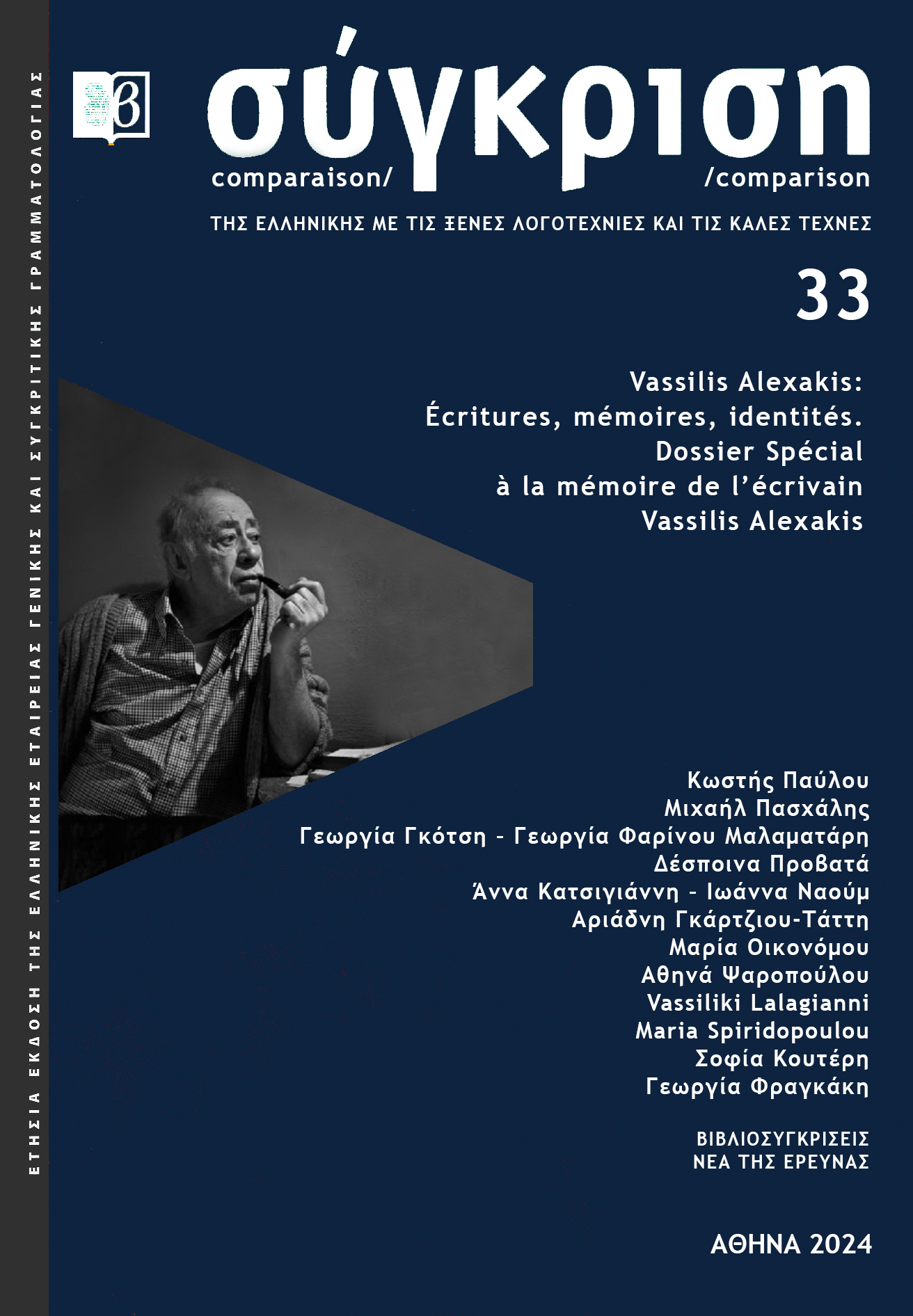«Μηχανές, ακριβείς και ευπαθείς»: Γραφειοκρατία και γραφή στον Kafka και τον Καρυωτάκη
Abstract
Since Franz Kafka and Kostas Karyotakis never met or read each other, their relation is not one of “influence” or “reception.” At the same time, one cannot overlook their lines of neighborhood and elusive kinship: both do not only belong to a late modern world of bureaucracy where, according to Kafka, "the chains of tortured humanity are forged of administrative papers;" they are also part of that bureaucratic machine and of Kracauer’s newly emerging class of “salaried employees” or white-collar workers. In fact, their professional work might be considered an essential constituent of bureaucratic biopolitics, applying methods of scaling to individual bodies and populations—be it risk management and insurance (in Kafka's case) or the condemnation of land and refugee accommodation (in the case of Karyotakis).
Accordingly, discursive elements of bureaucracy also permeate and modulate their literary works, from Kafka’s “paper language” [Papierdeutsch] to Karyotakis’ lyrical motifs and the many monsters of “pseudo-rationality.” And bureaucratic biopolitics finds its echo in specific images of the body, its movements or postures. Just as Kafka turns the “bend” or “erect” head of his administrative employees into a sign of what Deleuze/Guattari call “minor literature,” Karyotakis may present us with a “folded body” or “body that is about to rise” to follow an unseen line of flight. By tracing their common paths through the discourse of bureaucracy, one becomes aware of a vague and only partially embodied “family resemblance” between these two mechanized versions of Bartleby, The Scrivener.
Article Details
- How to Cite
-
Οικονόμου Μ. (2025). «Μηχανές, ακριβείς και ευπαθείς»: Γραφειοκρατία και γραφή στον Kafka και τον Καρυωτάκη. Comparison, (33), 262–288. Retrieved from https://ejournals.epublishing.ekt.gr/index.php/sygkrisi/article/view/36935
- Issue
- No. 33 (2024)
- Section
- Articles

This work is licensed under a Creative Commons Attribution-NonCommercial-ShareAlike 4.0 International License.
Authors who publish with this journal agree to the following terms:
- Authors retain copyright and grant the journal right of first publication with the work simultaneously licensed under a Creative Commons Attribution Non-Commercial License that allows others to share the work with an acknowledgement of the work's authorship and initial publication in this journal.
- Authors are able to enter into separate, additional contractual arrangements for the non-exclusive distribution of the journal's published version of the work (e.g. post it to an institutional repository or publish it in a book), with an acknowledgement of its initial publication in this journal.
- Authors are permitted and encouraged to post their work online (preferably in institutional repositories or on their website) prior to and during the submission process, as it can lead to productive exchanges, as well as earlier and greater citation of published work (See The Effect of Open Access).



